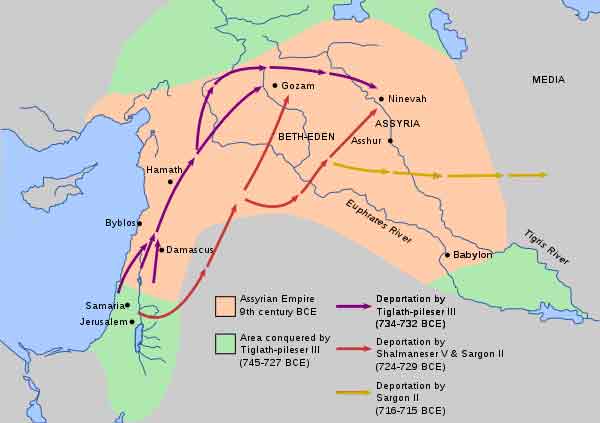World War II ended in 1945. The Jews then backed Britain in the war, and they also fought by their side against Germany. However, despite all of this, after the world war, the British continued with their policy of Arab appeasement with respect to Palestine. This policy was adopted because the British had vested interests in many places across the Middle East, and Britain needed the Arab world to protect these. Thus, in order to not hurt the Arabs, the British reimposed stringent sanctions on the entry of the Jews in the land of Palestine.
Moreover, Winston Churchill lost the Prime Ministerial election held after the war. Churchill was the one who firmly held the leadership of Britain during the war times and was one of those contemporary leading British figures who were in favour of the creation of the Jewish homeland in Palestine. Churchill’s Conservative Party was succeeded by the Labour Party, and Clement Attlee was the new Prime Minister.
The war, in fact, provided valuable battle experience to the Jewish soldiers. Also, the increase in demand for war equipment was a booster to the Jewish businesses in Palestine.
There happened one more event that aided the cause of the establishment of the Jewish homeland in Palestine. The American Jews, with their extensive propaganda and lobbying with the American leaders, forced the US administration to take a firm stance on the Palestine issue. With it, the United States was now a part of the process to find a solution to the problem of Palestine.
The persistent efforts and the follow up of the American Jews paid a rich dividend, as the US President Harry Truman wrote to the British Prime Minister Clement Attlee and asked him to rethink the British policy concerning Palestine. The letter, a request-cum-notice from Truman, also urged the British government to immediately issue entry permits for Palestine to the Jews facing anti-Semitism across Europe, particularly to at least the first batch of about 100 thousand Jews from Austria and Germany. Over and above, Truman also demanded that no restrictions whatsoever be imposed on Jewish immigration until such time that Palestine could absorb the Jewish immigrants. To give validity to his request, in December 1945, Truman got a bill passed in the US Congress for the unrestricted Jewish entry into Palestine.

This marked the admission of the United States to the list of the nations which were to key to decide the fate of the land of Palestine and this was also the moment that was to have very far-reaching effects.During those days, the highlighting of anti-Semitism in Europe before the world had created sympathy for the Jews the world over. In addition,the entry of the United States into the issue later internationalized it to a great extent.
The United States had played a key role in the victory of the Allied Nations at World War II. However, though victorious, the war weakened Britain economically. Consequentially, the United States replaced Britain as the superpower of the world,and as a result, a word from the United States carried a lot of weight on the international stage. Thus, to reject the American ‘request’ was not possible for Britain.
World War II led to many happenings on the global scene. One of these was the coming into existence of many Arab countries as free nations. Earlier, nations like Lebanon, Syria and Transjordan went under the British control with the treaties that were signed after World War I. Countries like Egypt though had achieved independence prior to this;they were under the heavy influence of the British. These countries successfully came out of itafter World War II.
All the Arab powers now surrounding Palestine had gird up their loins getting ready to turn the land of Palestine into an Arab nation and had also begun with rapid movements to achieve this goal. In October 1944,the Arab nations held a summit in Egypt’s Alexandriato discuss this issue. An agreement known as the ‘Alexandria Protocol’ was signed which stated, ‘Whatever the Jews had to face in Europe and particularly in Germany was, of course, baleful, and that the Arabs sympathized with the Jews for the same. However, at the same time, the stated issue and that of Palestine were two different matters. While giving justice to the European Jews, injustice should not be done to the Arabs of Palestine’.

Going a few steps ahead –to foster their mutual cooperation and to exist as a pressure group, the Arab nations with the advice of the British formed the ‘Arab League’ in 1945. Obviously, one of the points on its agenda was to establish Palestine as an Arab nation. To voice the concerns of the Palestinian Arabsat various fora, the Arab League established the ‘Arab High Committee’. Besides, the Arab League announced a boycott of the Jewish businesses in Palestine. The Arab world was now getting aggressive on the issue.

However, having been lashed by circumstances and misfortune for so many centuries and having faced several invasions, the Jews too were now,not to sit quietly before establishing their rightful ‘Jewish homeland’ in Palestine. War was inevitable and was nearing as well!
And the Jews too started to take steps accordingly. Completely rejecting the immigration restrictions by the British government, agrowing number of Jewish immigrants, but ‘without a permit’, were being increasingly taken into the land of Palestine with the help of the Haganah by some or the other means.
Simultaneously, the armed, underground Jewish organizations in Palestine like the Irgun, the Lehi, etc. began to exhaust the British by attacking their different installations and various offices.(To be continued…)













